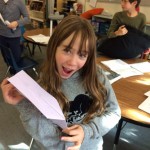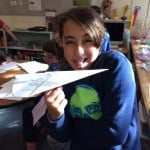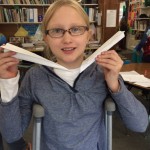Science can be a natural fit for elementary school children. Lessons are frequently kinesthetic by nature. Children have the opportunity to follow their own sense of curiosity and discover answers for themselves. Occasionally at Bixby (and in a mild way), students even get to “blow stuff up,” as they like to say.
The flip side of Bixby’s material-rich, inquiry-based curriculum, is that it demands both responsibility and self-discipline. Individual exploration is less structured than a prescribed step-by-step experiment; it requires degrees of self-pacing and self-motivation. Making and handling something like slime, while fun, can be more distracting than educational. Asking our young scientists to focus on forces and motion while they fly paper airplanes insists they do some very tough work.
All this presents a unique chance for children to notice what engages them, what distracts them, and how they learn best. The dynamic unfolds in all their classes, of course, in different ways; however, in science, by fourth or fifth grade, a Bixby kid can develop a picture of what it takes—for him or her as an individual—to handle delicate materials or see a long-term experiment through to its conclusion. Some of that knowledge is hard-won over time. It comes from having not finished an activity during class, and having to complete it during free time, or from misusing materials that are then off-limits for a while and gradually reintroduced. Like all of us, children forget what they’ve learned about themselves and set out to learn it again. It’s a beautiful thing, though, to see how Bixby kids grow in confidence and capability and rely increasingly on their own styles of learning. Students begin to find quiet places that will strengthen their focus. They ask for extra worksheets to take on additional practice (truly!). While Bixby’s young scientists find plenty of guidance here at school, I get to see how much they teach themselves, and not just about science.





